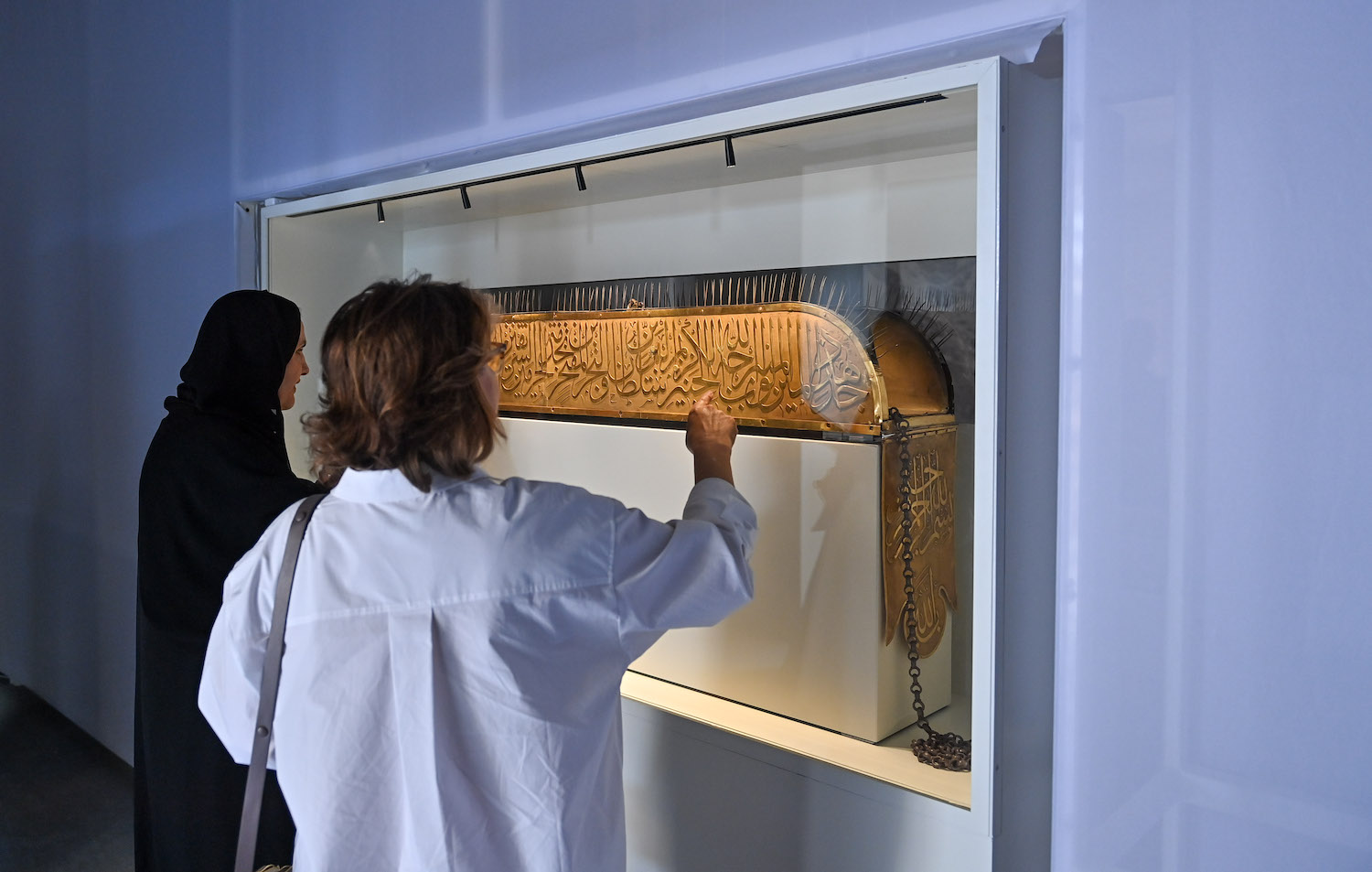JEDDAH: Like all other domains, women in the Kingdom have matched their ambitions and skills in enriching the arts and culture sector. Their contributions are creating meaningful and innovative works with their freedom and creativity.
In recent years, Saudi society has seen a boom in culture and arts, with the Kingdom’s women being a significant part of the growing landscape. The foreign perception of women lacking social capacity in arenas beyond the home has changed drastically through the art and cultural movement.
Ahead of International Women’s Day, which falls on Wednesday, Arab News canvased several women from the art and cultural scenes to acknowledge them and celebrate their participation in shaping the creative prospects of the country.
“Being a female artist in Saudi Arabia at present is very different from before,” said Saudi actress Helda Yassin, who won a Joy Award for favorite rising star in a TV series.
“Whether it’s a woman or man, they are likely to be the same at work, in social life and in media.”
She considers herself lucky to be part of the change happening in the Kingdom and to be among the women in the media promoting Saudi culture.
“The amount of support from family, friends and other artists has helped me grow my talent and be more brilliant in my work,” she said.
“Such unconditional support gives the best motivation and helps me explore other talents in me.”
Saudi writer Hafsa Alkhudairi, whose work mostly revolves around contemporary art, said: “In Saudi Arabia, women have always been culturally recognized as artists and the constant support from the community is also a privilege for the growth.
“Being in the art sector is an interesting experience for me. I meet so many talented creatives and get to spend time picking their brains. That in a way supports my own development.”
Alkhudairi said the changes were signs of a thriving industry in which women’s skills and expertise were recognized by the community and highly appreciated by the government.
“My biggest issue was the lack of faith in myself but I was pushed by friends to share my voice. That opened my world up in an unimaginable way.”
The creative art and cultural industries have drastically changed with government support and offer career longevity more than ever before.
“With the launch of the Saudi Music Commission, the once shunned career has in a sense normalized music and become an integral part of an ever thriving community,” said Fulana, a Saudi singer, songwriter and producer.
“Support from the government and the community is seen through the birth of new record labels in the country, especially like my own, Wall of Sound,” she said.

Women in the Kingdom have matched their ambitions and skills in enriching the arts and culture sector. (AN photo by Ali Khamaj)
“These individual labels allow for equal opportunities for artists of many different genres and create spaces to truly grow. Moreover, the growth of the music community with the establishment of venues and events of different sizes and capacities happening all year long is the biggest achievement.”
Fulana said she did not categorize herself as a female artist but as a Saudi musician.
Another Saudi actress, Ida Al-Kusay, said the Kingdom was gradually shedding light on artists and different art forms.
She thinks it will take people time to fully understand the importance of media, but the immense support from the government will help it flourish.
“As a child, I would always watch movies and feel so affected by the stories. The day I got the support of my family to go ahead and give it a shot was music to my ears because I’d finally get the chance to play the demographic I didn’t see much growing up. Being a Saudi actress and representing my country is one of my biggest achievements,” she said.
As for her advice to aspiring artists, Al-Kusay added: “Although I happened to be given this opportunity I never took that lightly. When starting this path a lot of us will have tough days, due to many elements but managing to stay together and strong and helping one another will always be a priority.
“I think we are on our way to having a global breakthrough in the film industry. As an artist, we know what it is like to be rejected and it is time for our stories to be told by us.”
Saudi women have also played roles in bridging the gap between the Kingdom and the global art and cultural world, mainly through events such as Saudi Design Week, the Islamic Arts Biennale, and creative collaborative projects that attract local and international artists.
Lujain Ibrahim, an interior designer and artist, said: “Women are better at multi-tasking and can create new things and hone their skills to make a difference.
“I believe we have a different sense and touch when involved in any task or work. We can call it a woman’s touch. I always find myself getting inspired and motivated by women who create art their own way and pursue dreams on their terms.”
Academic researcher Asmaa Alfageeh said Saudi women were developing in art and culture through their artistic and intellectual productions, by voicing their stories and letting the world see who they were.
“As a Saudi woman who is heavily involved in academia, I explore Saudi art through reading and decoding it, exploring the philosophies, aesthetics, values and the stories Saudi arts depict,” she said.
“I see it as my responsibility to respond to these art productions in every way possible, as both an academic and art connoisseur.”
Alfageeh thinks Saudi women are not only embracing their cultural identity but also celebrating it by engaging with the country’s history and heritage, manifesting the aesthetics of the old and authentic.
















